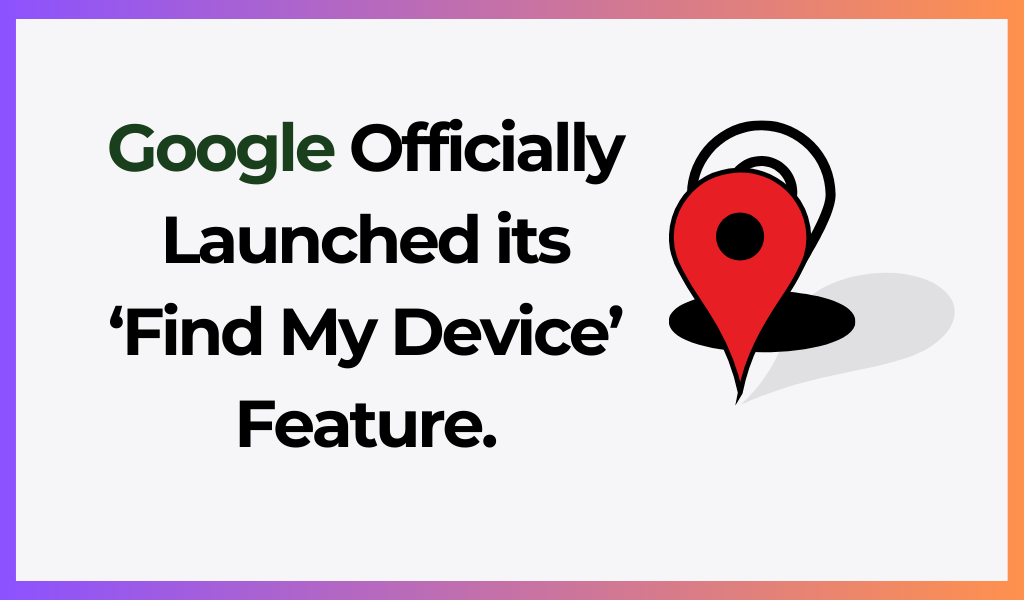Google has introduced its advanced Find My Device (FMD) network feature, initially rolling out in the US and Canada. This new service is designed to locate lost Android phones and tablets. Moreover, it is anticipated to extend its support to locating headphones in the near future. Google has also announced plans to introduce support for third-party Find My Device Bluetooth tags in May.

According to reports, Google postponed the launch of its Find My Device network for Android devices until Apple updated iOS to prevent AirTags from potentially exploiting it for tracking people.
The rollout of the new Find My Device network for Android devices commenced on Monday, making it available to all devices running Android 9 or later. With Android 14 already in use and Android 15 on the horizon, this feature caters to a broad spectrum of devices. Like Apple’s Find My network, the updated Android version provides many familiar functionalities while also introducing some additional features.
Soon, Android users will have the capability to locate phones, smartwatches, earbuds, and trackers thanks to Google’s latest Find My Device network. This week, Google introduced its Find My Device network aimed at locating devices even when they are offline.
Here’s what you can expect from the New Update Find My Device for Android.
- If your Android device is lost, Find My Device can help locate it on a map and send proximity alerts as you get closer to it. Importantly, specific Android devices can now be tracked even when they’re offline or have a low battery. Google has verified that this capability is accessible on Pixel 8 and 8 Pro smartphones.
- The new Find Nearby feature in Find My Device notifies users of their distance from their missing device. By choosing “Find nearby,” users can assess how close they are to finding their device based on the signals it emits.
- Android devices will soon gain the ability to track items using Bluetooth tracker tags, similar to Apple’s AirTag functionality. Google has revealed that tags from different companies like Chipolo, Pebblebee, eufy, Jio, and Motorola will be compatible with the Find My Device feature starting in May. Additionally, Find My Device will work together with cross-compatible Android and iOS unknown tracker alert features to prevent misuse of these tags by malicious individuals.
- Starting next month, when the Bluetooth trackers are released, users will be able to share the location of various items with their family and friends through Find My Device. This feature can be particularly useful for ensuring everyone in the family is aware of the whereabouts of important items like house keys. Moreover, users can easily revoke access later if needed.
- Android and Nest devices are both developed by Google, Find My Device seamlessly integrates with both to help users locate their desired items. This integration allows Find My Device to indicate the proximity of an Android device to Nest smart home products. For example, if you misplace your tracked house keys near your Nest speaker, Find My Device will alert you accordingly.
The new Find My network will be compatible with any Android phone running Android 9 or higher, although only the Pixel 8 and Pixel 8 Pro can be located even when powered off.
Also Read: How to Start as a Web Application Developer
Regarding security and privacy on this new network, Google assures users of multi-layered protections to ensure safety and privacy. Google emphasized in its post that the Find My Device network comes equipped with multi-layered protections aimed at ensuring user safety and maintaining the privacy of personal information. Additionally, users retain control over the devices connected to the Find My Device network.
“This includes end-to-end encryption of location data and aggregated device location reporting. Additionally, Google highlights a first-of-its-kind safety feature: aggregated device location reporting, which provides additional protection against unwanted tracking back to a home or private location.